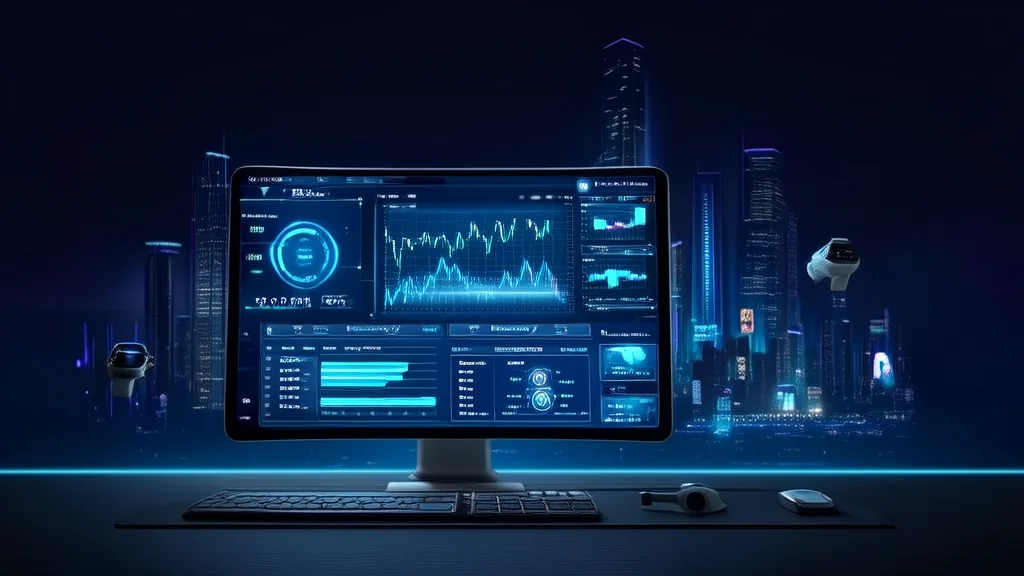AI in Action: Transforming Finance and Beyond
In the ever-evolving landscape of artificial intelligence, the real-world impact is becoming more tangible by the day. From revolutionizing financial services to driving innovation in big tech, AI is not just a buzzword but a transformative force. Let’s dive into some of the most compelling stories that highlight the practical implications of AI in finance and the broader tech ecosystem.
Revolutionizing Financial Services with AI-Powered Insights
One of the most significant areas where AI is making a tangible difference is in the financial sector. AI-driven analytics and machine learning algorithms are transforming how banks, investment firms, and insurance companies operate. For instance, JPMorgan Chase has implemented an AI system called COiN (Contract Intelligence) to analyze legal documents and extract key information. This system can process 12,000 annual commercial credit agreements in seconds, compared to the 360,000 hours it would take human lawyers. The practical impact is immense, as it reduces the time and cost associated with document review, allowing financial institutions to make faster and more informed decisions.
Real-World Example: A mid-sized bank in the United States recently adopted a similar AI solution to streamline its loan approval process. By automating the review of loan applications, the bank was able to reduce the average processing time from several days to just a few hours. This not only improved customer satisfaction but also allowed the bank to handle a higher volume of applications, leading to increased revenue.
Future Implications: As AI continues to evolve, we can expect even more sophisticated tools that will further enhance the efficiency and accuracy of financial operations. This could lead to more personalized financial advice, better risk management, and more innovative financial products.
Big Tech's Strategic Moves in the AI Arena
Major technology companies are at the forefront of AI innovation, and their strategic moves are shaping the future of the industry. Google, for example, has made significant strides with its AI research and development. The company recently announced the launch of its new AI-powered search engine, which uses natural language processing (NLP) to provide more accurate and contextually relevant search results. This not only enhances the user experience but also sets a new standard for search engines.
Real-World Example: Google's NLP technology is already being used by a major e-commerce platform to improve product recommendations. By understanding the context and intent behind user queries, the platform can offer more relevant and personalized product suggestions, leading to a 15% increase in conversion rates.
Future Implications: As big tech companies continue to invest in AI, we can expect to see more advanced and integrated AI solutions across various sectors. This could lead to more seamless and intuitive user experiences, as well as new business models and revenue streams.
Emerging AI Startups Disrupting the Status Quo
While big tech companies are making headlines, emerging startups are also playing a crucial role in driving AI innovation. One such startup, Zest AI, is using machine learning to help financial institutions make more accurate and fair lending decisions. By analyzing a wider range of data points, Zest AI’s models can identify creditworthy borrowers who might otherwise be overlooked by traditional credit scoring methods. This not only helps to expand access to credit but also reduces the risk of default for lenders.
Real-World Example: A community bank in the Midwest partnered with Zest AI to improve its small business lending process. By using Zest AI’s models, the bank was able to approve 20% more loans while maintaining a lower default rate. This not only supported local businesses but also helped the bank to grow its loan portfolio and increase its market share.
Future Implications: As more startups like Zest AI enter the market, we can expect to see a democratization of AI technology. This will enable smaller and more diverse organizations to leverage AI for competitive advantage, driving innovation and economic growth.
Conclusion
The real-world impact of AI is evident across various sectors, from finance to big tech and beyond. By providing practical solutions and driving innovation, AI is not just a technological advancement but a catalyst for change. As we look to the future, the continued evolution of AI will undoubtedly bring about new opportunities and challenges, shaping the way we live and work.
